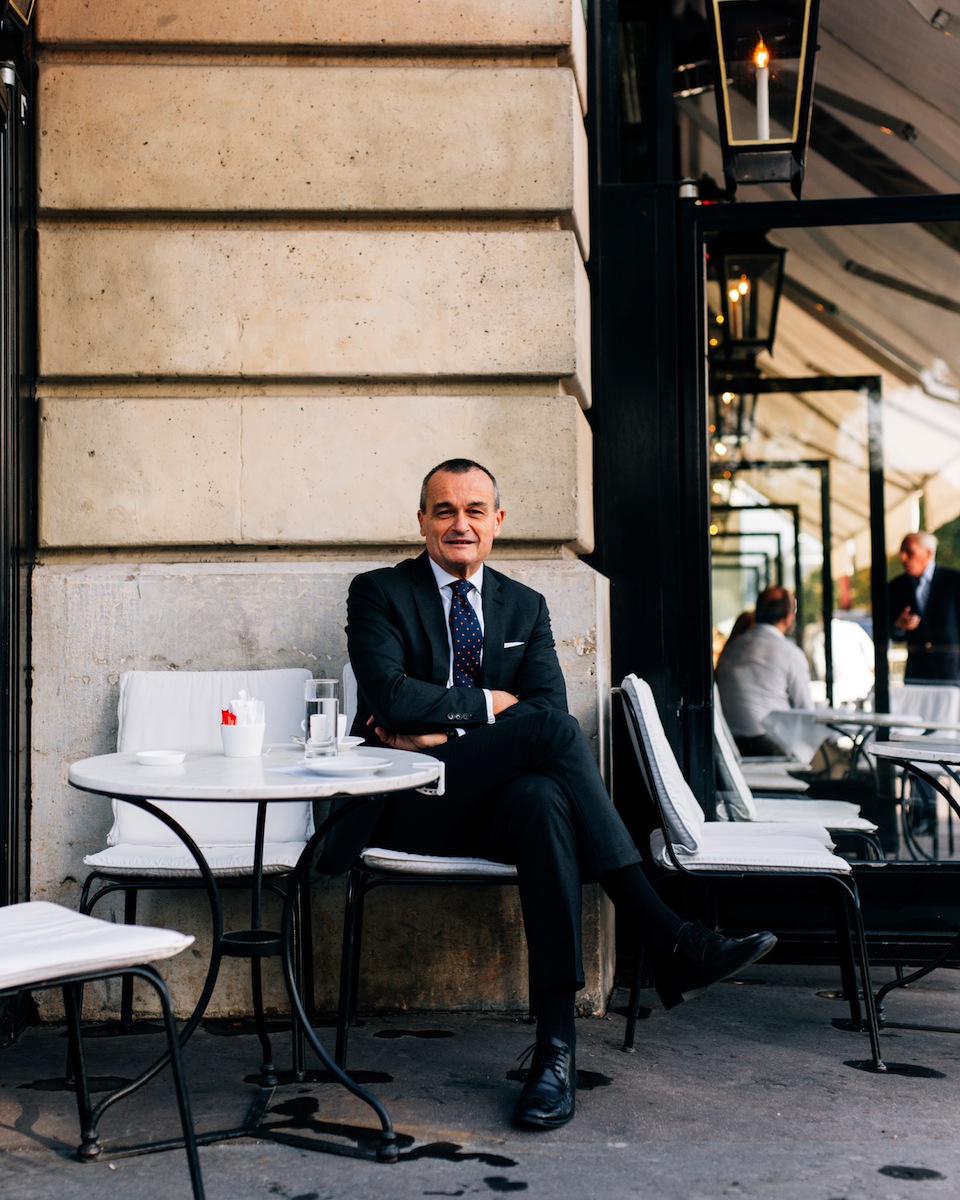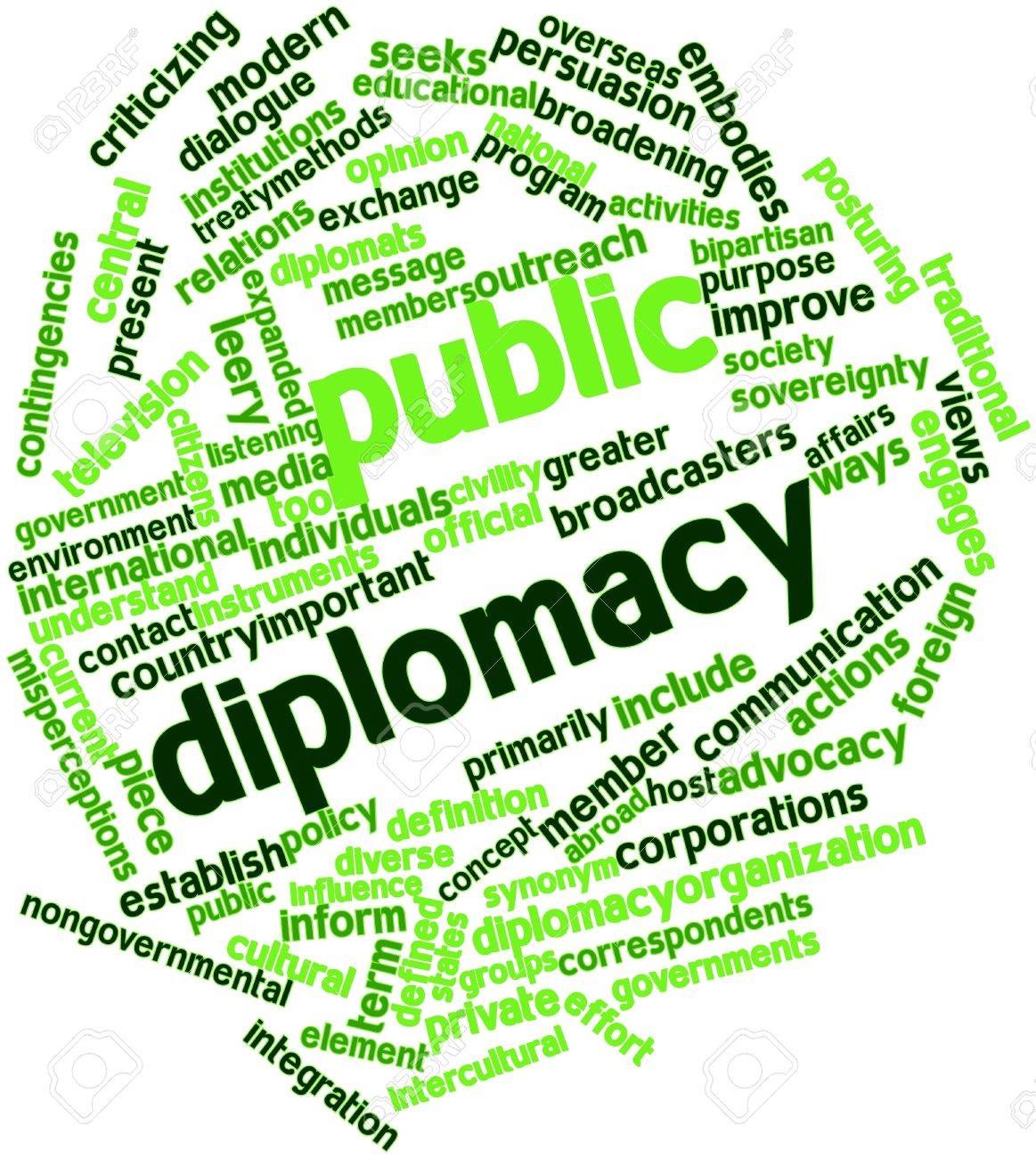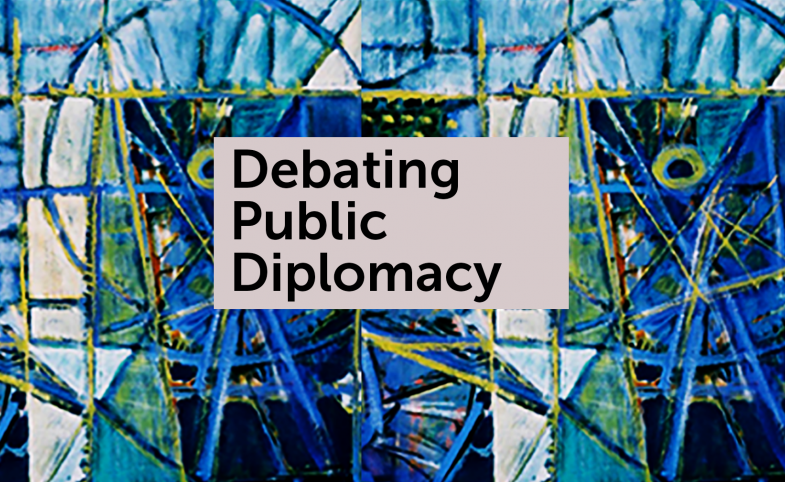
Photographed by Mehdi Lacoste
On a fall afternoon in Washington, D.C., Gérard Araud, France’s new ambassador to the United States, is seated on a long white sofa in his office at the French Embassy, gushing about his “Irish beauty.” The object of his affections is Samantha Power, the American ambassador to the United Nations, with whom he worked at his previous posting in New York. During an official meeting at the UN, Araud explains, he sent Power a very unofficial text: “On behalf of the French mission, I have to tell you: you are beautiful.” “It was not very politically correct,” Araud says, but the slip in decorum evidently did not bother Power. “She answered that that was one of the best messages she had ever received.”
Adhering to political correctness isn’t Araud’s style, which makes him a rather unlikely diplomat—and a visible one. Only two months into the job, Araud has made a splash in Washington’s staid social circles with his forthrightness and his fiery Twitter feed. He is so outspoken, in fact—on Gaza, on the World Cup, on Syria—that the detail which might otherwise have distinguished him most on Embassy Row has loomed irrelevant in the background: Araud is openly gay, one of few openly gay ambassadors Washington has ever hosted, and France’s first.
“We are living in 2014,” says Araud, who is 61, tall, thin, handsome, and, on this particular day, wearing a striped button-up by Charles Tyrwhitt, a charcoal gray suit, and cufflinks adorned with little raspberries. “We can’t simply behave the way diplomats used to, whispering platitudes.”
Araud’s approach has earned him admirers, Ambassador Power among them. “Gerard highlights his texts of flattery, which were much appreciated, as they often landed just after drag-out arguments with the Russians over Ukraine,” she said in an email. “But while I am nostalgic for his charming texts, what I miss more is watching him in action, as during his time at the UN he made it his mission to ensure innocent civilians around the world were protected from marauding thugs. Don’t let his epic charm fool you—Gerard is a master strategist, a diplomatic and bureaucratic samurai, and one of the most authentic and authentically decent people ever to practice diplomacy.”
Araud grew up in Marseille, graduated from France’s top universities, and joined the Ministry of Foreign Affairs in the early eighties. During his more than thirty-year career in diplomacy, he has served as France’s ambassador to Israel, a Middle East expert for the French Embassy in D.C., and, most recently, as a permanent representative to the United Nations in New York. He assumed his current position in September. Almost as notably, it was in April of this year that Araud joined Twitter, a social platform not known for rewarding diplomatic temperaments.
“There is no definition of what is a diplomat,” Araud says. “It’s very much the projection of your personality, so I know myself. I was born on the Mediterranean coast. My shortcoming is that I am talkative, so I try to use it in a positive manner.”
Araud’s Twitter feed, which has a modest following of almost 7,000, is a zany stream of photographs of French tourist sites, links to stories about French art exhibitions, and Nietzsche quotes. But that’s not all it is. Unlike other diplomats, who use Twitter mainly to broadcast official statements from their governments back home, Araud tweets back at his critics. He got into a war of words with Kenneth Roth, the head of Human Rights Watch, when Roth criticized France’s alleged stance on Western Sahara. (“@KenRoth your message is wrong!” he tweeted, adding, “You rely on rumors and disinformation.”) And he makes his opinions on foreign policy known. Here’s an Araud tweet on Iraq: “The invasion of Iraq in 2003 was an unmitigated disaster of which the Iraqis and the international community are still paying the price.” Here’s one on Russia: “In foreign policy, you can win on the short term and lose on the long term. For instance, if you grab Crimea and lose Europe.” And here’s a retweet: “Americans killed by Ebola today: 0. Americans killed by ISIS today: 0. Americans killed by guns today: 86.”

Photographed by Mehdi Lacoste
“The way I am working is not without risk,” Araud says, letting out a spontaneous giggle and crossing his legs on a coffee table in front of him, on which a yellow toy car is parked. “From time to time, I am sweating.” About social media in particular, Araud says, “It can be dangerous. From time to time, I’ve tiptoed the red line.” . . . . People on one side are saying that diplomats should be much more open, should behave as normal people, but then the moment we do it, people ask why.”It’s been nearly three decades since Araud’s first stint in Washington, as a counselor on Middle East issues in the late eighties, and he does concede that its culture has come a long way. “The city has developed and it’s more sophisticated. In the eighties the city was basically only government. Everyone was sleeping, eating, loving, talking government. It was not a real city in a sense,” he says. “Now it’s a real city.” He recently discovered a sushi bar in Georgetown that he likes, and dined at a French restaurant on Washington’s newly trendy Fourteenth Street, aptly called Le Diplomate.
Araud is doing his part to update his corner of the city, with the official French residence undergoing what he describes as a “gut renovation.” A Tudor Revival mansion built in 1910, the home that comes with the French ambassadorship is one of the most admired in Washington’s tony Kalorama neighborhood. An invitation to the house, where Vanity Fair holds its lavish annual after-party following the White House Correspondents’ Dinner, is among the most coveted in town, perhaps second only to the White House.
“Most of the people, even before saying hello, ask me when the residence will reopen,” says Araud, who is currently living in a temporary house in the Foxhall neighborhood, or what he describes as “the middle of nowhere.” “I have concluded not only that people don’t really care about me, but more seriously, that they consider that the house is something that matters in Washington, D.C.” The home will reopen in February, and Araud plans to have several parties to inaugurate its new look.
The fashion situation in his profession is another matter altogether, Araud says. He decries what he calls “the boxy suit” and “being a prisoner” to what people expect an ambassador to wear. “The clothing of the man is so sad,” he says. “It’s always a dark suit. I’m always looking for details to try to enhance it.” In New York, Araud explains, he made a habit of advising his French colleagues on their suits. “They were obliged because I was the boss. We had real male vanity discussions in the corridors of the UN.” The situation in New York has improved dramatically, he says. “You see less and less of these oversize suits, giving the impression that they are three sizes too big,” he says. “In Washington, it’s still the case.” (This reporter couldn’t help but notice an orange Hermès box on his desk, where it serves as a chic depository for business cards.)
Araud has a longtime partner, photographer Pascal Blondeau, with whom he shares homes in New York, Paris, and Greece. Though they’ve been together for nineteen years, they have no plans to marry. “I am not interested at this moment in marriage for myself,” Araud says, “but I don’t see any reason why anyone should be denied this right.” He adds that the fight for marriage equality in France rattled him. “I thought my country was very enlightened, especially on sexual matters. I was totally astonished by the violence of the reaction of the opposition.”
Blondeau will not act as an official host at embassy functions because “he’s deadly bored by diplomatic niceties,” Araud says. “He accepted only one invitation last year, by Susan Rice, because Susan was begging to meet him.” As Araud carves out his new role in D.C., there’s one thing he is sure of: He doesn’t want to be known as the gay ambassador. “I don’t want to be reduced to one dimension.” Or as Araud likes to say: “Never insult a man’s vanity. Especially a Frenchman’s.”
http://www.vogue.com/3622379/gerard-araud-french-ambassador-washington








